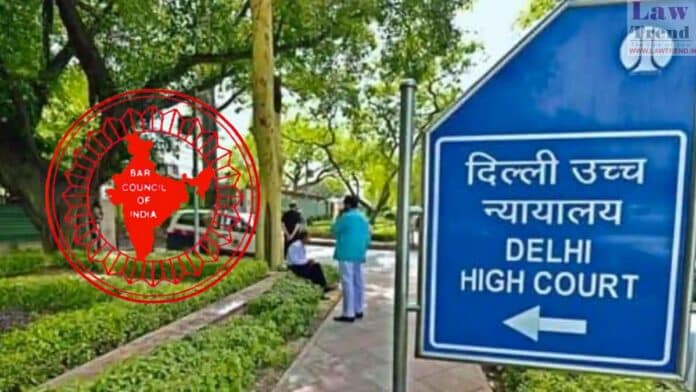The Bar Council of India on Tuesday told Delhi High Court that it will consider within “reasonable time” the issue of introducing Right to Education Act as a compulsory subject in law colleges.
A bench headed by Chief Justice Satish Chandra Sharma was hearing a public interest litigation by NGO Social Jurist, which asserted that Right of Children to Free and Compulsory Education (RTE) Act, 2009, a key right of children, can be implemented in its true letter and spirit only if it is taught as a compulsory subject in the curriculum rather than just being part of a subject.
Lawyer Ashok Agarwal, the petitioner’s counsel, said a representation was made to the Council last month to include RTE Act in the curriculum and the authority should be asked to decide the same.
The counsel for the Bar Council of India (BCI) said the body would certainly look into the representation within a reasonable time.
Under Legal Education Rules, the Council is empowered with the responsibility of prescribing compulsory subjects in centres of legal education.
The bench, also comprising Justice Subramonium Prasad, remarked during the hearing that the petitioner should have given some “breathing time” to the Council to decide its representation before filing the petition.
The petition stated that compulsory teaching of RTE Act as a separate subject is required in the public interest as awareness about the legislation is basic to legal education in the country.
“RTE Act, 2009, was enacted by the Indian parliament in terms of Art 21-A of the Constitution of India that guarantees free and compulsory education to all children in the age of 6-14 years in such manner as the state may, by law, determine. Both Art 21-A of the Constitution and RTE Act, 2009 came into force wef 01.04.2010.
“Though a period of over 12 years have elapsed, hardly anyone among law students, lawyers and judges are aware of it. We have found that RTE Act, 2009 has not so far been introduced in the curriculum of law students in law colleges and universities,” the plea alleged.
It added that the right to education is a key right of children but it has not been implemented in its true letter and spirit. The plea said there is an additional responsibility on the legal education system to ensure that lawyers are familiarised with the manner in which this right is to be protected and justice is ensured to children.




